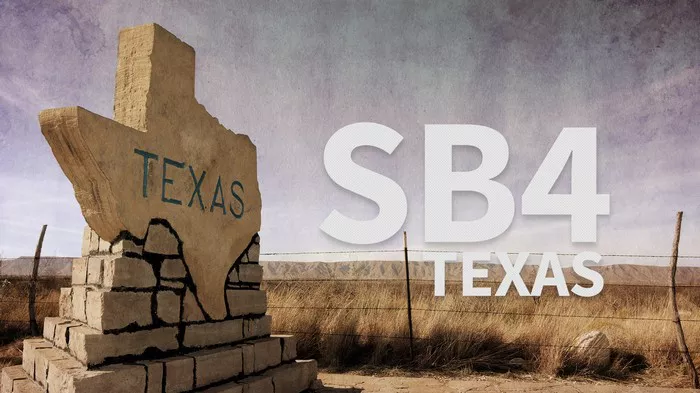On Tuesday, a flurry of court rulings briefly allowed and then subsequently halted the implementation of a contentious new immigration law in Texas. The law, Senate Bill 4 (SB 4), would grant authority to state and local law enforcement to arrest and deport individuals residing in the state without legal status.
The Biden administration has voiced opposition to SB 4, arguing that the U.S. Constitution and legal precedent establish the federal government’s exclusive jurisdiction over immigration law enforcement.
As the federal court deliberates on the law’s validity, a legal tug-of-war regarding its immediate enforcement created chaos on Tuesday. The U.S. Supreme Court initially permitted the law to be enforced for several hours. However, near midnight, a lower court reinstated the injunction against the law and scheduled an impromptu hearing for Wednesday morning.
During the hearing, a three-judge panel scrutinized the details of SB 4 and heard arguments from the Texas solicitor general, as well as representatives from the U.S. Department of Justice and the ACLU, on why the law should be invalidated.
While the appeals court deliberates, SB 4 remains on hold.
What is SB 4?
SB 4, passed by Texas late last year, grants authority to state and local law enforcement agencies to enforce immigration law. Proponents, mainly Texas Republicans, argue that it is a response to what they perceive as overly lenient border policies by the Biden administration, addressing what they term a “border crisis.”
According to Texas solicitor general Aaron Nielson, the bill aims to address concerns raised by the administration regarding the border situation.
The law would authorize state and local police officers to arrest individuals suspected of residing in the country illegally. Additionally, judges could order the deportation of migrants to ports of entry along Texas’s border with Mexico, irrespective of their country of origin.
Originally set to take effect on March 5, the law faced legal challenges from both the U.S. government and the ACLU, resulting in a preliminary injunction blocking its enforcement while the case is under review.
The legal challenge:
The Biden administration contends that Texas exceeded its constitutional boundaries by enacting SB 4, asserting that immigration policy and law enforcement fall exclusively within federal jurisdiction.
Critics argue that SB 4 represents an encroachment on federal authority, with concerns of potential racial profiling arising from the law’s provision allowing law enforcement officers to question individuals’ immigration status for any reason.
The legal debate draws parallels to the 2012 Supreme Court case Arizona vs. United States, which struck down most of Arizona’s attempt to create state-level immigration laws.
Opponents’ perspectives:
Civil rights and immigrant rights groups have expressed concerns over SB 4, fearing it could lead to increased racial profiling and the mass criminalization of communities. There are also apprehensions that the law could complicate asylum cases for migrants facing state criminal charges.
Mexico has voiced opposition to SB 4, stating that it will not accept migrants deported under the law. The country also expressed concerns for Mexican nationals in Texas, citing potential hate speech, discrimination, and racial profiling.
Law enforcement response:
While some local law enforcement agencies have expressed readiness to enforce SB 4, others have voiced uncertainty about its implementation. Culberson County Sheriff Oscar Carillo highlighted concerns about jail capacity and the discretion needed for arrests.
The appeals court hearing underscored the need for clarity on the law’s enforcement. Texas solicitor general Aaron Nielson faced challenges in providing answers to hypothetical scenarios posed by Chief Judge Priscilla Richman.
As the legal battle continues, the fate of SB 4 remains uncertain, with implications extending beyond Texas’s borders.


